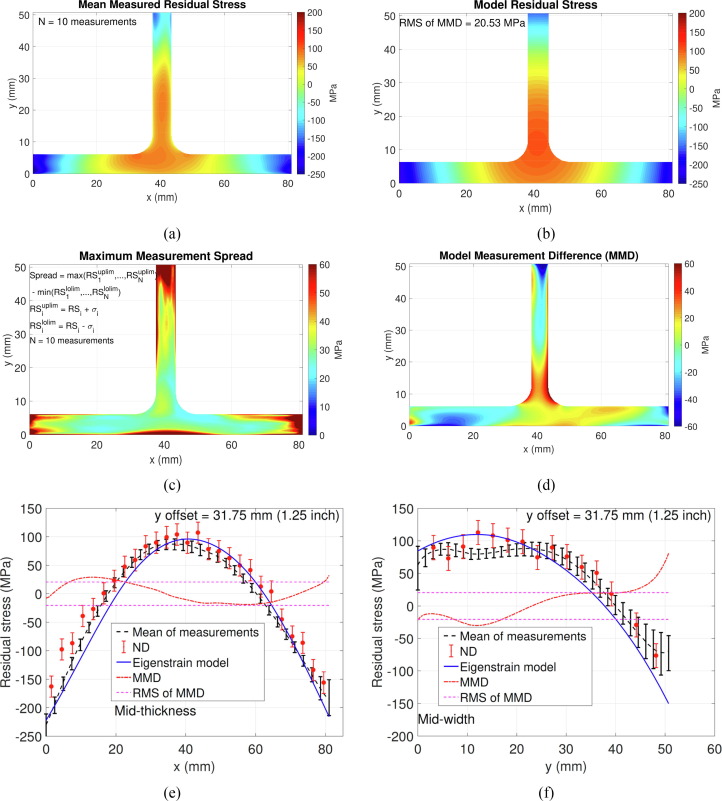Hill Engineering recently published new research outlining a approach for predicting fatigue crack growth in the presence of residual stress fields. The paper is titled Measurement-driven, model-based estimation of residual stress and its effects on fatigue crack growth. Part 1: validation of an eigenstrain model and appears in International Journal of Fatigue. The abstract text is available here along with a link to the publication.
The objective of this paper is to validate a measurement-driven, model-based approach to estimate residual stress (RS) in samples machined from quenched aluminum stock. Model input is derived from measurement of RS in the parent stock. Validation is performed for prismatic T-sections removed from bars at different locations. We find RS predicted agrees with RS measured, by contour and neutron diffraction methods, with root-mean-square model-measurement difference of 22 MPa. Follow-on work (in Part 2) applies the RS estimation to samples representative of aircraft structures and examines the effects of RS on fatigue crack growth in the RS-bearing samples.

If you are interested, the full publication is available here.